Medically reviewed by Dr. Ramesh Gaddam, M.D. — Written by Sumalatha, D.N.H.E
Anti-acidity foods are those that may help reduce or neutralize stomach acidity, alleviate heartburn, and provide relief from acid reflux symptoms.
1. Foods with Anti-Acidic Properties
If you’re looking to manage acidity or reduce acid reflux, incorporating anti-acidity foods into your diet may be beneficial.
Here are some foods that are generally considered to have anti-acidic properties:
Oatmeal:
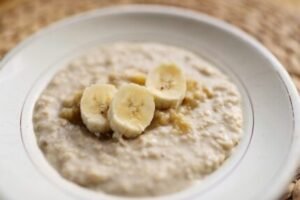
Oatmeal is a versatile and nutritious grain that is rich in fiber. The soluble fiber in oatmeal has the ability to absorb excess stomach acid, providing relief from acidity and heartburn.
Additionally, oatmeal promotes a feeling of fullness, which can help prevent overeating and reduce the likelihood of acid reflux.
Ginger:
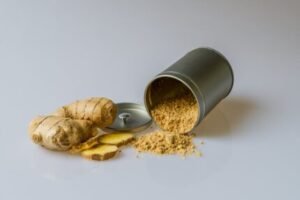
Ginger has long been recognized for its medicinal properties, including anti-inflammatory effects.
In the context of digestion, ginger can help soothe the digestive tract and may reduce inflammation, contributing to a decrease in acidity.
It is often consumed as a tea or added to meals to enhance flavor while providing potential relief from digestive discomfort.
Bananas:

Bananas are a low-acid fruit that can act as a natural antacid.
They contain substances that stimulate the production of mucus in the stomach, which forms a protective barrier against stomach acid. The potassium in bananas also helps neutralize acidity.
As a result, bananas are a go-to fruit for individuals seeking relief from acid reflux and heartburn.
Melons:
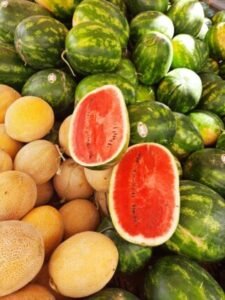
Melons, such as watermelon and cantaloupe, are hydrating fruits with a low acidity level.
Their high water content can help dilute stomach acid, providing a soothing effect on the esophagus.
The natural sugars in melons may also help neutralize acidity. Consuming melons in moderation can be a refreshing and gentle option for those looking to alleviate acid reflux symptoms.
Papaya:
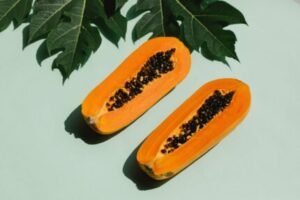
Papaya contains a digestive enzyme called papain, which helps break down proteins in the stomach.
This enzyme aids in the digestion process, reducing the likelihood of undigested food causing acid reflux.
Papaya’s natural anti-inflammatory properties can also contribute to a calmer digestive system, making it a valuable fruit for those experiencing heartburn and acidity.
Non-citrus Fruits:

Non-citrus fruits, such as apples, pears, and berries, are generally lower in acidity compared to citrus fruits.
They are rich in vitamins, minerals, and antioxidants, providing a sweet and nutritious alternative.
The fiber content in these fruits can aid in digestion and may help prevent acid reflux symptoms.
Vegetables:
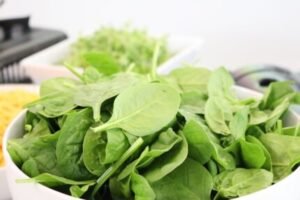
Most vegetables are naturally low in acid and high in essential nutrients.
Leafy greens like spinach and kale, cruciferous vegetables such as broccoli and cauliflower, and root vegetables like sweet potatoes are well-tolerated by many individuals.
These vegetables contribute to a well-rounded and digestive-friendly diet while providing essential vitamins and minerals.
Lean Proteins:

Choosing lean proteins, such as skinless poultry, fish, and tofu, is advisable for individuals prone to acid reflux.
These protein sources are lower in fat, reducing the risk of triggering acid reflux symptoms.
Incorporating lean proteins into meals provides necessary amino acids for muscle health without putting undue stress on the digestive system.
Whole Grains:
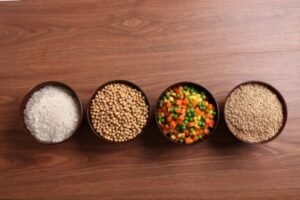
Whole grains, including foods like brown rice, quinoa, and whole wheat bread, offer complex carbohydrates and fiber.
Compared to refined grains, whole grains are gentler on the stomach and may help regulate digestion.
The fiber content contributes to a feeling of fullness, promoting overall digestive health and potentially reducing the likelihood of acid reflux.
Almond Milk:

Almond milk is a non-dairy alternative that may be less irritating to the stomach than cow’s milk.
It is naturally lower in fat and contains no lactose, making it a suitable option for individuals with lactose intolerance.
Almond milk is fortified with vitamins and minerals, providing a nutritious and acid-neutral option for those looking to avoid traditional dairy while supporting digestive comfort.
Herbal Tea:

Herbal teas, such as chamomile, ginger, and licorice root, are known for their soothing properties on the digestive system.
Chamomile, in particular, has anti-inflammatory effects and can help relax the muscles of the gastrointestinal tract.
Ginger tea may aid digestion and alleviate nausea, while licorice root tea may have a calming effect on the stomach.
These teas are often enjoyed for their comforting nature and potential to relieve digestive discomfort.
Aloe Vera:
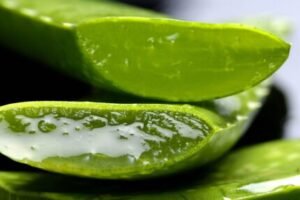
Aloe vera is a plant known for its various health benefits, including its potential to soothe the digestive tract. Aloe vera juice, derived from the inner gel of the leaves, may have a cooling and calming effect on the stomach lining.
It is often consumed in small amounts to help alleviate symptoms of acid reflux and indigestion.
However, it’s essential to use aloe vera products specifically intended for consumption and consult with a healthcare professional before incorporating them into your routine.
Yogurt:
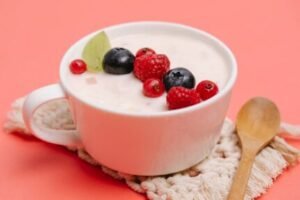
Yogurt, especially varieties that contain probiotics (live beneficial bacteria), can be beneficial for digestive health.
Probiotics help maintain a healthy balance of gut bacteria, contributing to a well-functioning digestive system.
Yogurt’s probiotic content may aid in the prevention of acid reflux by promoting a balanced microbial environment in the gut. Opt for plain, unsweetened yogurt for the best digestive benefits.
Olive Oil:
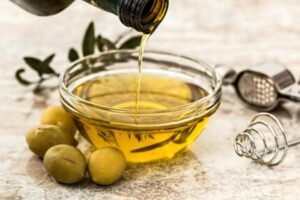
Olive oil is a healthy fat that may help reduce stomach acidity.
It contains monounsaturated fats, which are considered heart-healthy fats.
While incorporating moderate amounts of olive oil into your diet, especially in salad dressings or as a cooking oil, it may contribute to overall digestive well-being.
However, it’s essential to consume it in moderation, as excessive fat intake can lead to other digestive issues.
2. Foods to Avoid or Limit

On the other hand, if you are trying to avoid acidity and heartburn, you should also limit or avoid the following:
Citrus Fruits:
Citrus fruits, such as oranges, lemons, grapefruits, and limes, are acidic in nature.
While they offer a rich source of vitamin C and other nutrients, their acidity can exacerbate acid reflux and heartburn symptoms.
Individuals prone to acid-related issues may consider limiting the intake of citrus fruits, especially in the evening or close to bedtime.
Tomatoes and Tomato-Based Products:
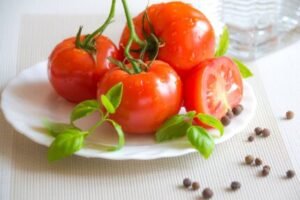
Tomatoes contain citric and malic acids, which can contribute to acid reflux.
Additionally, tomatoes are often used in various processed foods and sauces, such as ketchup and marinara sauce.
These tomato-based products can be highly acidic and may trigger heartburn.
Managing the consumption of tomatoes and their derivatives can be beneficial for those seeking to reduce acidity.
Fried and Fatty Foods:

Fried and fatty foods can relax the lower esophageal sphincter (LES), allowing stomach acid to flow back into the esophagus.
This can lead to the onset or exacerbation of acid reflux symptoms.
Foods like fried chicken, French fries, and high-fat meats should be consumed in moderation to minimize the risk of triggering heartburn and indigestion.
Chocolate:

Chocolate contains theobromine, a compound that can relax the LES and contribute to the reflux of stomach acid.
Additionally, chocolate is rich in fat, which can further slow down digestion.
While chocolate is enjoyed for its taste, individuals prone to acid reflux may consider limiting their intake, especially before bedtime.
Peppermint and Spearmint:
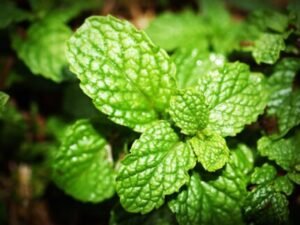
While mint flavors are often associated with soothing qualities, peppermint and spearmint can relax the LES, potentially leading to increased acid reflux.
Minty candies, teas, and chewing gum with these flavors may need to be limited for those experiencing frequent heartburn or acid-related discomfort.
Carbonated Beverages:

Carbonated beverages, including sodas and sparkling water, introduce gas into the digestive system, leading to increased pressure on the LES.
This pressure can cause stomach acid to reflux into the esophagus.
Choosing non-carbonated alternatives and staying hydrated with water may help reduce the likelihood of acid reflux associated with carbonated drinks.
Individual reactions to foods can vary, and it’s essential to pay attention to your body’s responses.
If you have persistent acidity or digestive issues, it’s advisable to consult with a healthcare professional for personalized advice.
Frequently Asked Questions
People frequently searched for questions related to acid reflux are:
What Food Helps Acid Reflux Go Away?
Certain foods can help alleviate acid reflux by reducing stomach acid and soothing the digestive system. These include:
- Oatmeal
- Ginger
- Lean meats
- Green vegetables
- Non-citrus fruits
What Can I Eat Out with Acid Reflux?
When dining out with acid reflux, choose foods that are grilled, baked, or steamed. Opt for dishes like:
- Grilled chicken or fish
- Steamed vegetables
- Salads with non-acidic dressings
- Rice or quinoa bowls with lean protein and veggies
What Foods Are Non-Acidic?
Non-acidic foods help reduce the risk of acid reflux. Some examples are:
- Bananas
- Melons
- Oatmeal
- Whole grains
- Leafy greens
What Fruit Is Good for Acid Reflux?
Fruits that are low in acid and can help with acid reflux include:
- Bananas
- Melons (cantaloupe, honeydew, watermelon)
- Apples (especially peeled)
Is Curd Good for Acidity?
Curd, or yogurt, can be beneficial for acidity as it contains probiotics that promote healthy digestion and balance stomach acid levels. Choose plain, non-fat or low-fat yogurt for best results.
What to Drink for Acid Reflux?
Drinks that can help soothe acid reflux include:
- Herbal teas (e.g., chamomile, ginger)
- Non-citrus juices (e.g., aloe vera juice)
- Water with a splash of apple cider vinegar
- Almond milk
What Is the Fastest Relief from Acid Reflux?
For quick relief from acid reflux, consider:
- Chewing gum to increase saliva production
- Drinking a glass of water
- Consuming a small amount of baking soda mixed with water
What Is the Best Breakfast for Acid Reflux?
A reflux-friendly breakfast might include:
- Oatmeal with a banana
- Whole grain toast with almond butter
- Scrambled egg whites with spinach
- Smoothie with non-citrus fruits and almond milk
What to Eat During Acidity?
When experiencing acidity, opt for:
- Plain rice or oatmeal
- Steamed vegetables
- Lean protein like chicken or fish
- Non-citrus fruits
Which Drink Kills Acidity?
Ginger tea is particularly effective in killing acidity due to its natural anti-inflammatory properties. Additionally, cold milk can neutralize stomach acid.
How to Cure GERD Permanently?
To potentially cure GERD permanently, lifestyle changes are crucial:
- Maintain a healthy weight
- Eat smaller, more frequent meals
- Avoid trigger foods (e.g., spicy, fatty foods, caffeine, alcohol)
- Elevate the head of your bed
- Quit smoking
- Manage stress
What Indian Food Is Good for Acid Reflux?
Indian foods that are good for acid reflux include:
- Plain dal (lentils) without spices
- Steamed idlis
- Plain rice with curd
- Grilled or tandoori chicken without spicy marinades
- Raita (yogurt-based side dish)
What Foods Stop Acid Reflux?
Foods that can help stop acid reflux include:
- Ginger
- Whole grains
- Green vegetables
- Non-citrus fruits
- Lean proteins
What Biscuit Is Good for Acid Reflux?
Plain biscuits like digestive biscuits or graham crackers can be suitable for acid reflux sufferers, as they are less likely to trigger symptoms.
How to Cure Empty Stomach Acidity?
To alleviate empty stomach acidity:
- Eat small, frequent meals to avoid an empty stomach
- Start the day with a glass of warm water
- Consume foods like bananas, oatmeal, and almonds
- Avoid skipping meals
These tips and dietary adjustments can help manage and reduce the symptoms of acid reflux and acidity effectively.
Also Read:
Acid Reflux: 10 All Time Best Home Remedies
Medically reviewed by Dr. Ramesh Gaddam, M.D.

General Physician, Diabetologist, and Critical Care Specialist.
Discover more from Health Build-Up
Subscribe to get the latest posts sent to your email.
3 thoughts on “11 Foods to be avoided for Heartburn & Acidity (Acid Reflux)”
Comments are closed.